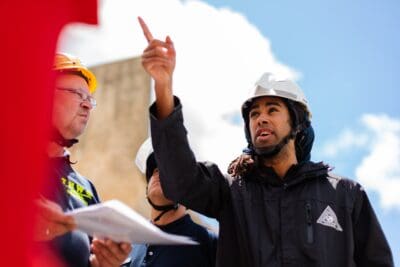Drawing from JFF’s Quality Jobs Framework, this report overlays findings from the Green Transformation Cycle with key measures of job quality. The authors focus on opportunities for career advancement, fair compensation, job structure, and agency and culture within a position. Much like any quality job, green jobs should offer not only living wages but also provide access to reliable health insurance, retirement benefits, and paid family and sick leave. Green job workers should also have the opportunity for lifelong learning and internal advancement. For those current and emerging green jobs in physically demanding industries, such as construction or manufacturing, roles must be structured to promote physical safety, stability, and predictability when it comes to fair and transparent scheduling. Finally, all workers should have the authority to make decisions and feel a sense of ownership in their work and their future.
Uniting Leaders for a Green Economy and Resilient Workforce
Prioritizing equity and job quality now helps ensure that the nascent green economy does not replicate current racial and gender gaps and widespread economic disparities. As JFF’s recent report states, the transition to a green economy is both critical and inevitable, offering inclusive workforce development as a path to mitigating environmental harms. This report is the first to provide employers and policymakers with an understanding of how they can increase access to the economic benefits of a green economy for all workers, regardless of their occupations and industries. Using the Green Transformation Cycle for guidance, we must seize the opportunity to shape an economy that actively engages and benefits every worker in the collective effort to address climate change.
Learn more about Climate-Resilient Employees for a Sustainable Tomorrow (CREST), an initiative by JFF and the Ares Charitable Foundation.












